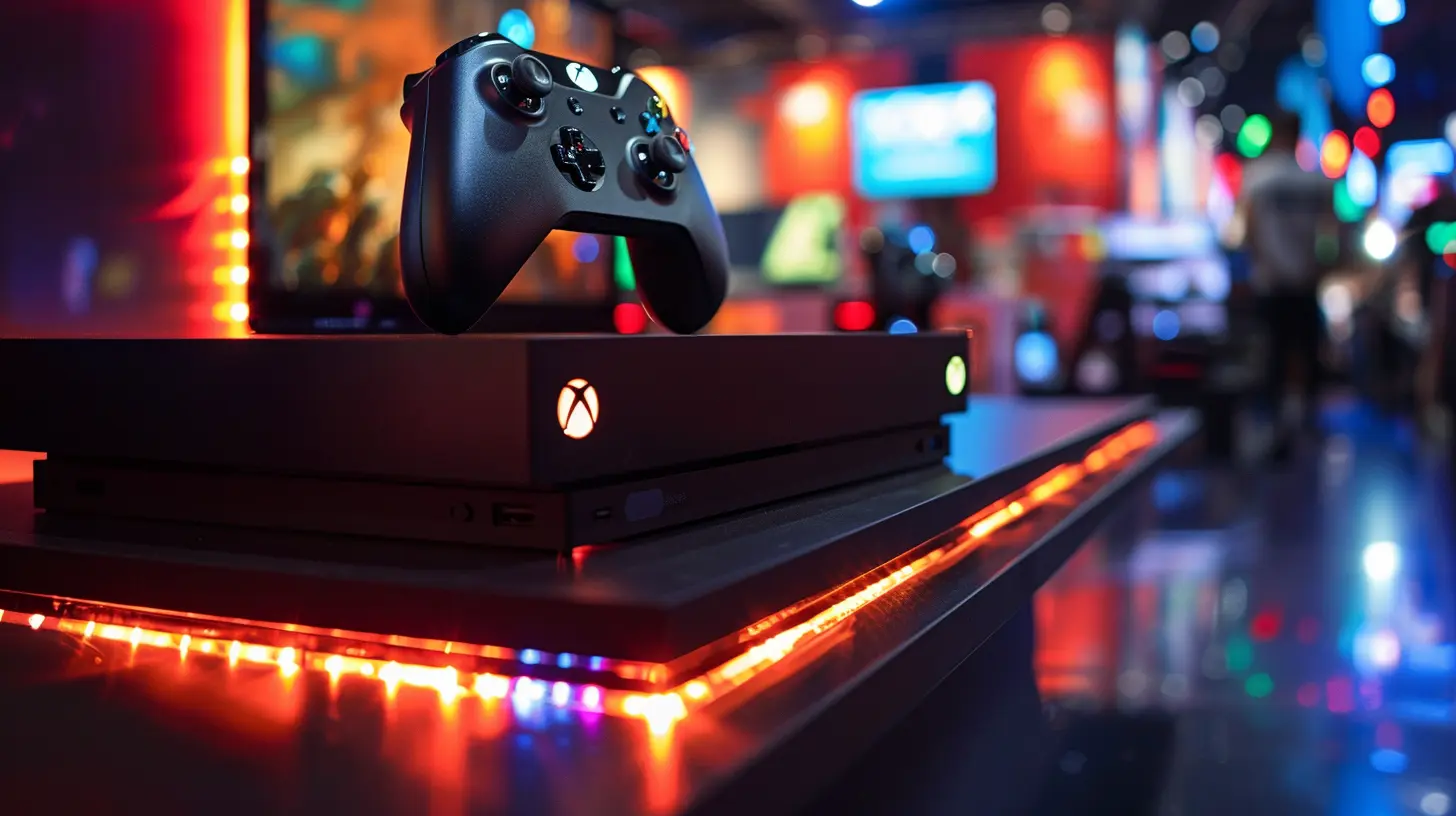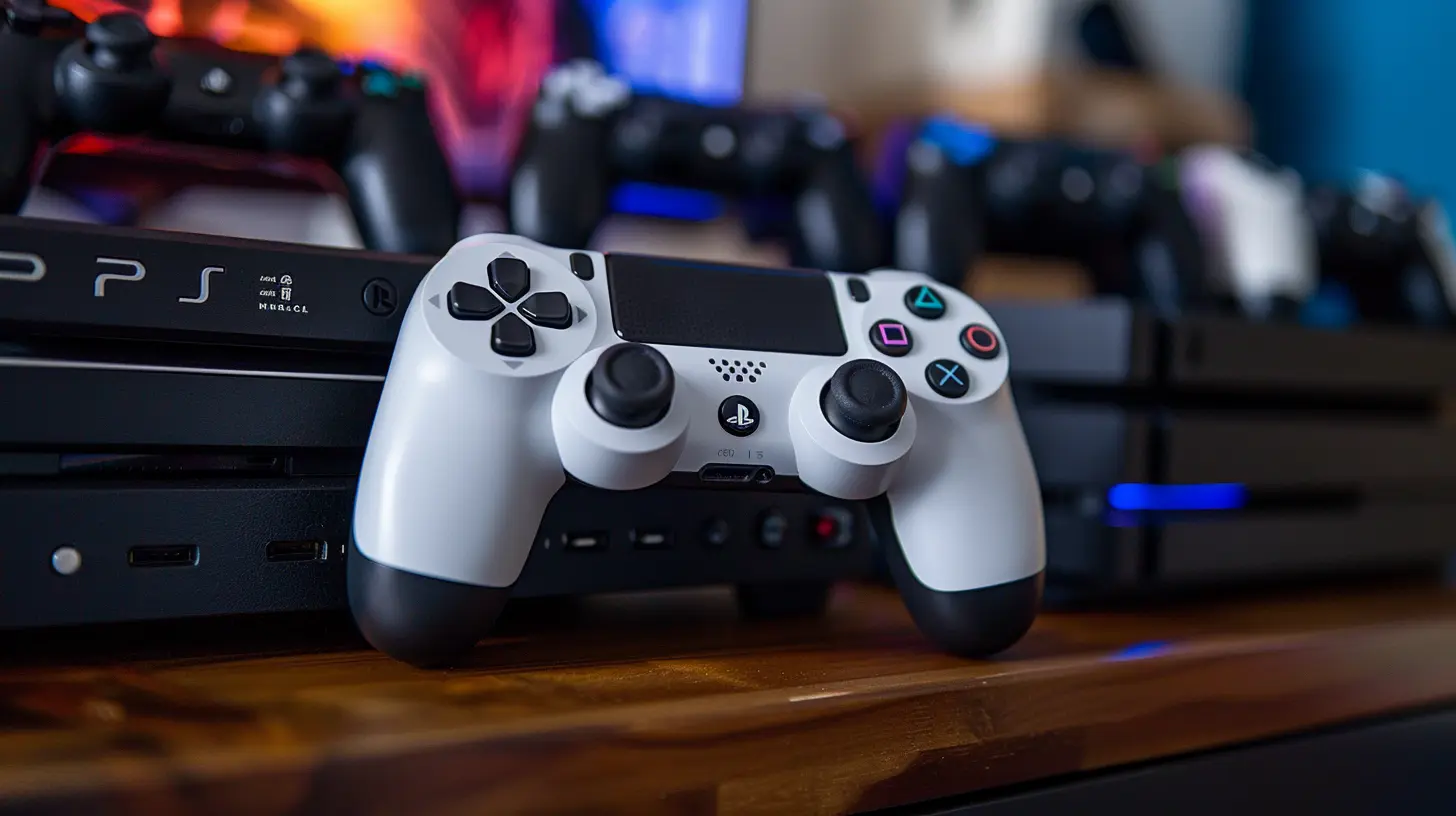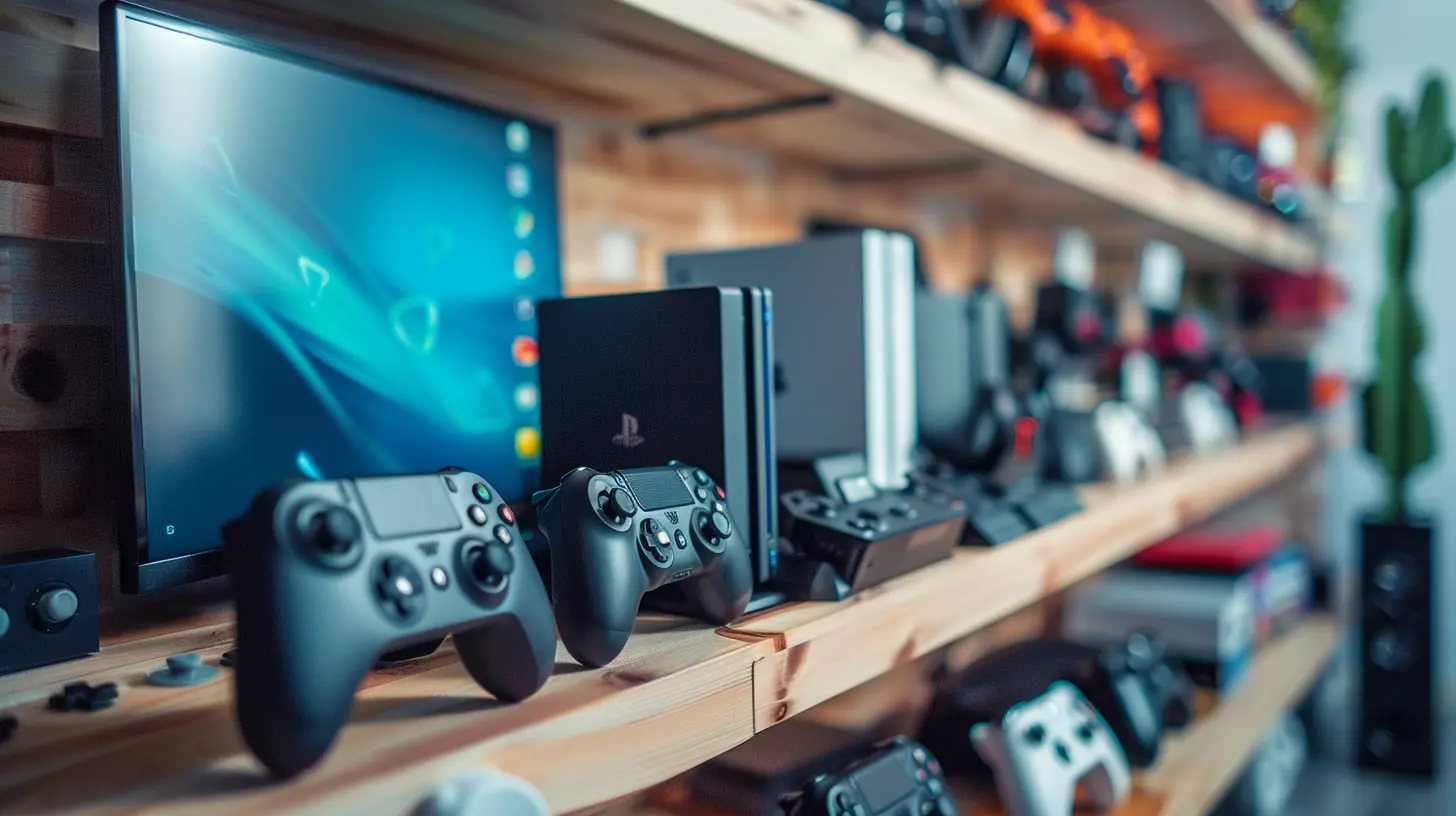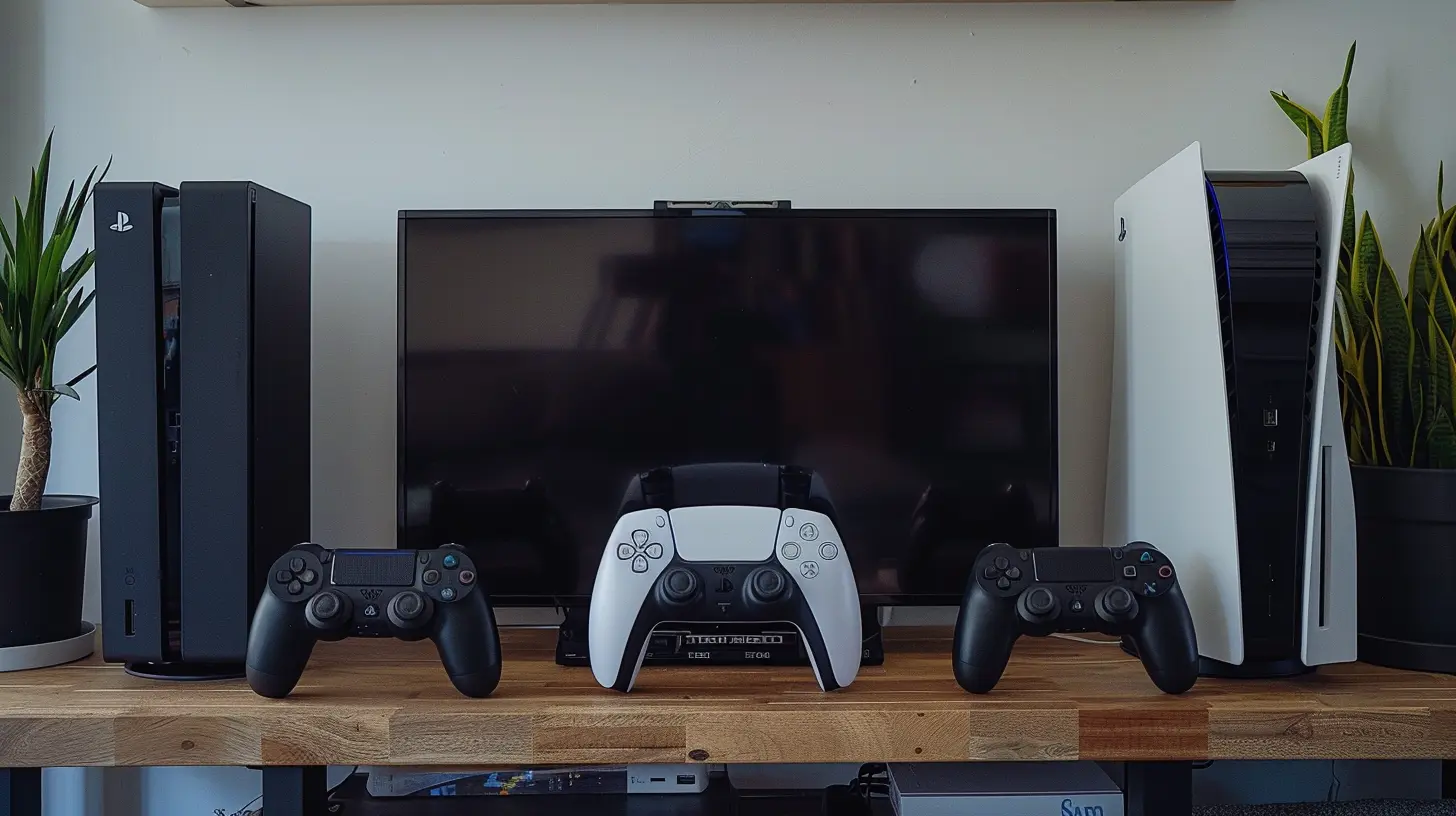Console Mods: What's Allowed and What's Not
30 May 2025
Gaming consoles have been around for decades, and with each new generation, gamers find ways to tweak, modify, and enhance their gaming experience. But not all modifications are created equal. Some console mods are completely legal and even encouraged, while others can land you in hot water with console manufacturers and even legal authorities.
So, what’s allowed, and what’s not when it comes to console modding? Let’s break it down.

What Are Console Mods?
In simple terms, console mods (short for modifications) are changes made to a gaming console—either in hardware or software—to improve functionality, change the look, or unlock restricted features. Some people modify their consoles to enhance performance, while others do it purely for aesthetics.Mods usually fall into three categories:
1. Cosmetic Mods – Changing the appearance of the console or controller.
2. Hardware Mods – Upgrading internal components for better performance.
3. Software Mods – Modifying the system software to unlock certain functionalities.
Each type comes with its own set of rules, risks, and potential consequences.

Cosmetic Mods: All Good, No Harm
If you’re thinking about giving your console a fresh new look, go right ahead! Cosmetic mods are widely accepted because they don’t interfere with a console’s core operation. They include things like:- Custom skins, wraps, and decals
- LED lighting modifications
- Custom paint jobs on the console or controllers
These mods are purely aesthetic and don’t violate any terms of service. Manufacturers don’t care if your PlayStation 5 glows like a neon sign as long as the hardware remains untouched.

Hardware Mods: A Gray Area
Hardware modifications are where things get a little tricky. Some upgrades are totally fine, while others could void your warranty or even get you banned. Here’s a breakdown:Allowed Hardware Mods:
- Upgrading Storage: Swapping out an HDD for an SSD or adding more storage via an external drive is usually fine. Many manufacturers even provide instructions for storage upgrades.- Cooling Mods: Adding cooling pads, external fans, or thermal paste replacements to prevent overheating is generally acceptable, though it may void your warranty if done improperly.
- Custom Controllers: Swapping buttons, triggers, or thumbsticks for better comfort is widely accepted, and even pro gamers do it.
Not Allowed (or Risky) Hardware Mods:
- Overclocking: Pushing a console’s CPU or GPU beyond factory settings can cause damage and is not supported by manufacturers.- Mod Chips: Installing a mod chip to bypass software restrictions or run pirated games is a big no-no. It violates terms of service and can lead to bans or even legal trouble.
- Removing DRM Restrictions: Any hardware modification that removes digital rights management (DRM) protection is illegal in many regions.

Software Mods: The Legal and Illegal Divide
Software modding is where most gamers get into trouble. Manufacturers take software modifications seriously and won’t hesitate to ban, disable, or even sue users caught violating their policies.Allowed Software Mods:
- User Interface Themes: If a console allows UI customization, changing colors, wallpapers, or themes is perfectly fine.- Official Developer Mode (Where Available): Some consoles, like the Xbox Series X/S, offer an official “Developer Mode” that allows users to sideload and test apps legally.
Not Allowed Software Mods:
- Jailbreaking: Jailbreaking a console to run unauthorized software or homebrew applications is a direct violation of terms of service.- Piracy-Related Modding: Using custom firmware to play pirated games is illegal and can result in console bans or legal action.
- Bypassing Online Restrictions: Modifying the software to access regions or features not available in your country is against most manufacturers’ policies.
The Risk of Getting Banned
One of the biggest risks of modding your console (especially with software modifications) is getting banned from online services. Companies like Sony, Microsoft, and Nintendo actively monitor for modified consoles and can permanently ban accounts caught using unauthorized modifications.A ban can mean:
- Losing access to online multiplayer and game downloads
- Being locked out of purchased digital content
- Having your console blacklisted from official servers
Essentially, you could turn your $500 console into a fancy paperweight if you’re not careful.
Legal Consequences of Illegal Mods
Beyond just getting banned, illegal console mods can have real legal consequences. In many countries, modifying a console to bypass security or enable piracy can lead to lawsuits or fines.For instance:
- The DMCA (Digital Millennium Copyright Act) in the U.S. makes it illegal to bypass copyright protection technologies.
- The EU Copyright Directive has similar restrictions on circumventing DRM.
While law enforcement rarely targets individual users, companies do crack down on people selling or distributing illegal mods. So if you're thinking about monetizing console modding, be very careful.
Ethical Considerations of Modding
Now, let’s get real for a second. Just because you can modify a console doesn’t always mean you should. There are ethical concerns when it comes to certain types of modding, especially when it affects game developers and publishers.For example:
- Piracy hurts developers – If everyone modded their consoles to play pirated games, small indie studios would go out of business.
- Cheating ruins online gaming – If you mod your console to use cheats in multiplayer games, you’re not just breaking rules—you’re ruining the experience for others.
While some mods (like improving hardware performance) make sense, others cross the line into unethical territory.
Future of Console Modding
As consoles get more advanced, manufacturers are tightening security to prevent unauthorized mods. However, modding will probably never disappear entirely. Many enthusiasts continue to push boundaries, finding creative (and legal) ways to enhance their gaming experience.Some areas where modding could be embraced in the future include:
- Official modding support for single-player games (like Skyrim’s mod tools)
- More user customization options (to reduce the need for external mods)
- Open development platforms for indie gaming enthusiasts
It’s possible that manufacturers could one day recognize the modding community and provide safer, legal ways for users to make adjustments.
Final Thoughts
Console mods can be a fantastic way to enhance your gaming experience, but they come with risks. Cosmetic mods? Go for it. Hardware upgrades? Be careful. Software tweaks? Understand the consequences before diving in.If you want to mod your console, always weigh the risks first. A little customization isn’t worth getting banned or facing legal trouble. Stick to the safe side, and you’ll get the best of both worlds—enhancements without the headaches.
all images in this post were generated using AI tools
Category:
Gaming ConsolesAuthor:

Marcus Gray
Discussion
rate this article
3 comments
Ava McCaffrey
Console mods are like adding sprinkles to a chocolate cake—deliciously tempting, but too many could ruin the whole thing! Remember, folks: if your console starts sounding like a jet engine, maybe it’s time to dial down those mods a notch!
June 3, 2025 at 8:59 PM

Marcus Gray
Great analogy! Moderation is key when it comes to console mods—enhance your experience without overdoing it!
Meagan Davis
Great overview on console mods! Understanding legal boundaries is crucial for gamers. Always check your warranty and local regulations before modifying.
June 2, 2025 at 12:53 PM

Marcus Gray
Thank you! I'm glad you found the overview helpful. Staying informed about legal boundaries is essential for a safe and enjoyable gaming experience.
Oberon McPhail
This article offers a concise overview of the legal and ethical landscape surrounding console mods. It effectively highlights the fine line between permissible modifications and those that violate terms of service. Understanding these nuances is crucial for gamers seeking to enhance their experience while avoiding potential penalties.
May 30, 2025 at 10:29 AM

Marcus Gray
Thank you for your insights! I'm glad you found the article helpful in clarifying the complexities of console mods.



